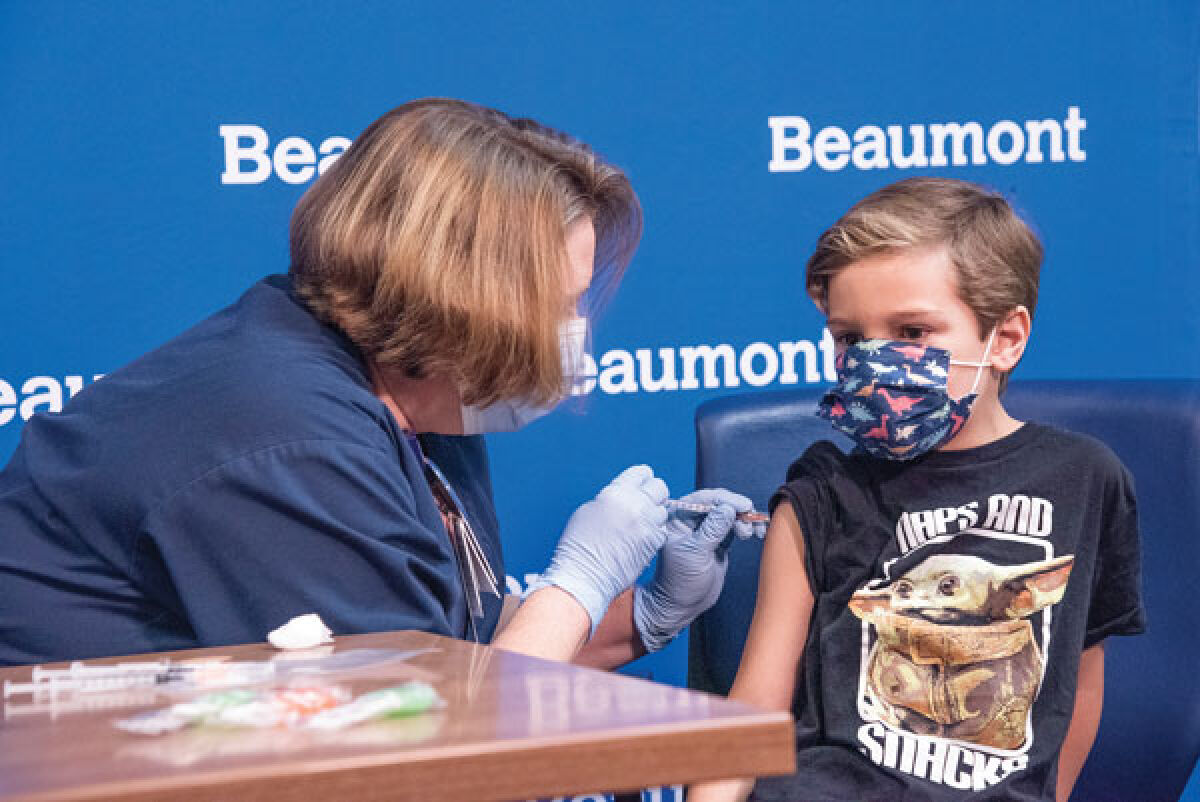METRO DETROIT — August is National Pediatric Immunization Month, and medical professionals are getting the word out about the importance of vaccinating children, particularly when they are very young.
Many parents can be confused or uncertain about what vaccines their children can and should get when under age 5.
“The (Centers for Disease Control and Prevention) has really good guidance and good parent-friendly guides that show what you should be giving a child and when they should get them. You can go to www.cdc.gov/vaccines for a schedule,” said Dr. Katie Schafer, a pediatrician for Beaumont Health. “The local health department websites for your county often offer vaccine events and clinics. When in doubt, consult the CDC.”
Schafer added that there are several common vaccines parents should almost always be speaking to their pediatricians about.
“Routine vaccinations before starting school include boosters for (diphtheria, tetanus and pertussis); polio; the measles, mumps and rubella vaccine; and chickenpox,” she said, “Back in 2018, we had a measles outbreak in metro Detroit, and there was recently a polio case in New York, so while we may think these are far-off and difficult-to-contract diseases, they are out there and are dangerous.”
Antonette Phelps, of Royal Oak, is mother to Luca, age 5, and Bryce, age 3. She said she was uncertain about many facts of what vaccines her kids should be getting and when they should get them, but she said consulting a doctor can ensure a parent stays on the right path.
“Talk to your doctor. They obviously know the science behind it, and they can calm down the fears you might have. I was nervous about giving a 3-year-old a vaccine that was still fairly new, and our doctor was able to tell me the facts,” she said. “I follow our pediatrician’s chart. There’s polio and DTaP. I am a teacher, so I get the flu shot every year, and they get it, too.”
With autumn just around the corner, getting a yearly flu shot also can be important for families, even if very small children are too young to get them, Schafer said.
“This time of year, we are recommending the influenza vaccine. The recommendation is to get this vaccination as soon as possible,” said Schafer. “It’s often done where we can vaccinate parents for things like influenza in cases where we can’t vaccinate a young baby. This provides more protection for that household and can protect the child by ensuring the parent doesn’t bring something home to the child.”
One of the most common concerns among parents right now is when and if children can get a COVID-19 vaccine or booster.
“The COVID vaccine is eligible for kids 6 months and older,” said Schafer. “Two manufacturers, Pfizer and Moderna, are approved for children that young. All kids ages 5 and up are eligible for booster shots now.”
“Everything we’ve heard from doctors is positive in regard to kids getting the COVID-19 vaccine,” added Phelps. “We haven’t had it. We’ve known families who have had kids get COVID. Luca was eligible last fall and got a booster. Bryce just became eligible when he turned 3. I think he was one of the youngest kids in the area to get the shot.”
Schafer stressed the importance of relying on trained and certified medical professionals and the importance of getting vaccines before there is a widespread problem, not after people have already begun getting sick.
“During the 2019 measles outbreak, we could tell parents that if their kids were already vaccinated, they were safe. Vaccines are best when they are preventative, not reactive, and we saw that with COVID,” she explained. “Often, parents are hesitant to give them multiple vaccinations at once, but that is totally safe. These extra doses we give them as boosters are important. There’s no vaccine we give that is only in one dose, so boosting their immune system in multiple doses is important. Consult your physician; don’t rely on what you are reading on the internet.”
Both Phelps and Schafer said they hope parents realize the importance of vaccines in young children, particularly in the years before they enter kindergarten.
“Vaccines are important. People need to be on the same page so we get that herd immunity is in place, but that only works if everyone is getting vaccinated,” said Phelps. “It’s nerve wracking when you hear diseases are coming back because people aren’t vaccinating their kids against them.”
“It’s important to remember the importance and power of providing protection for providing vaccinations,” Schafer added. “Vaccines are essentially medicine’s greatest success.”
 Publication select ▼
Publication select ▼






















